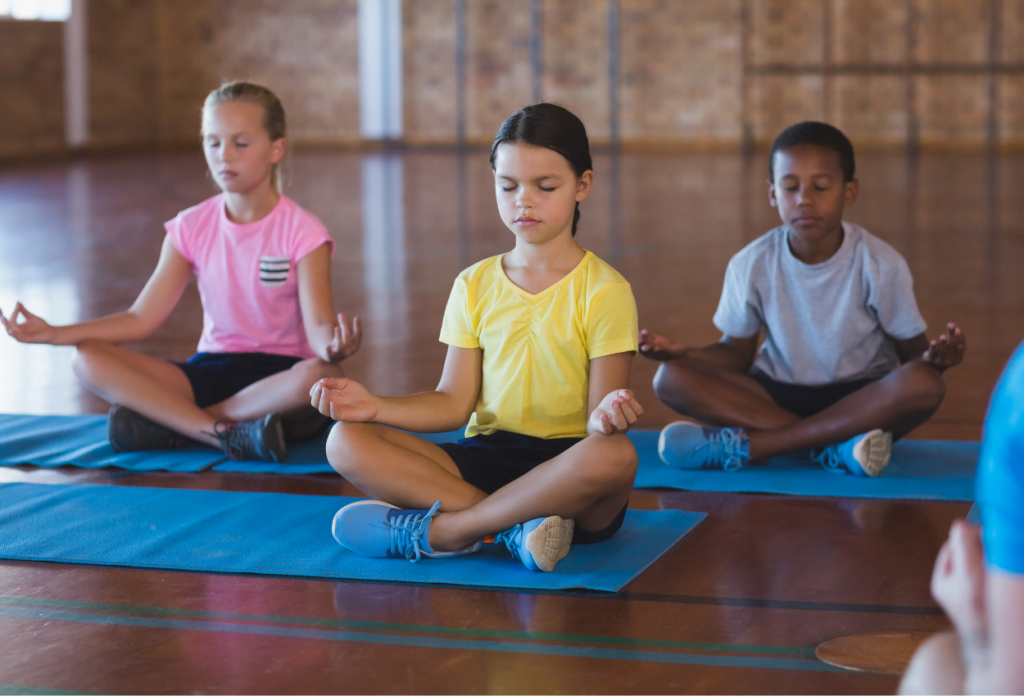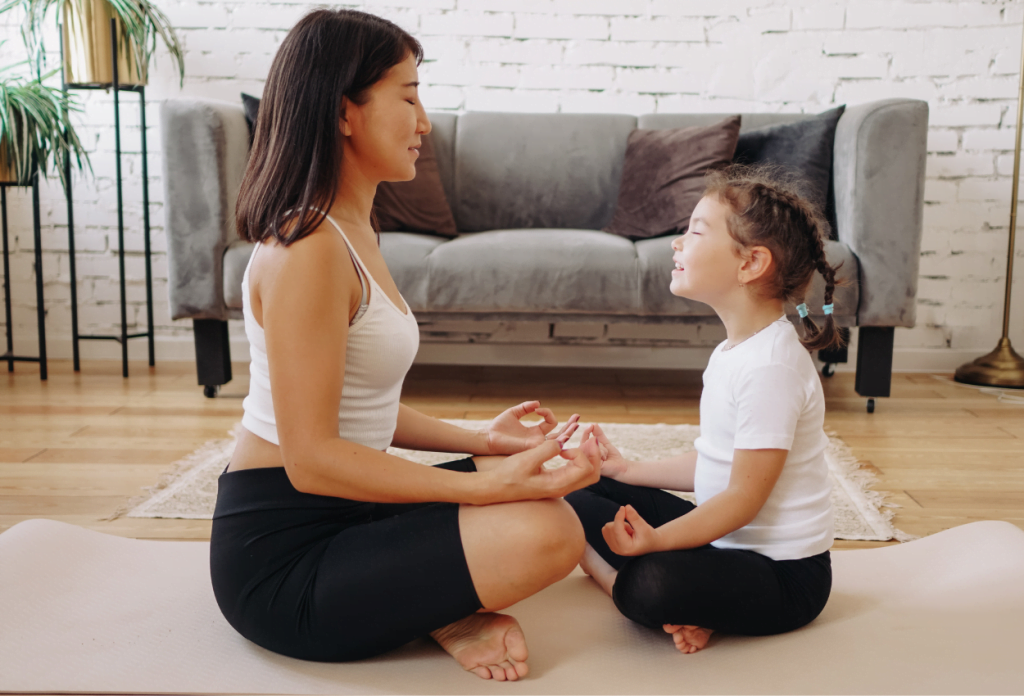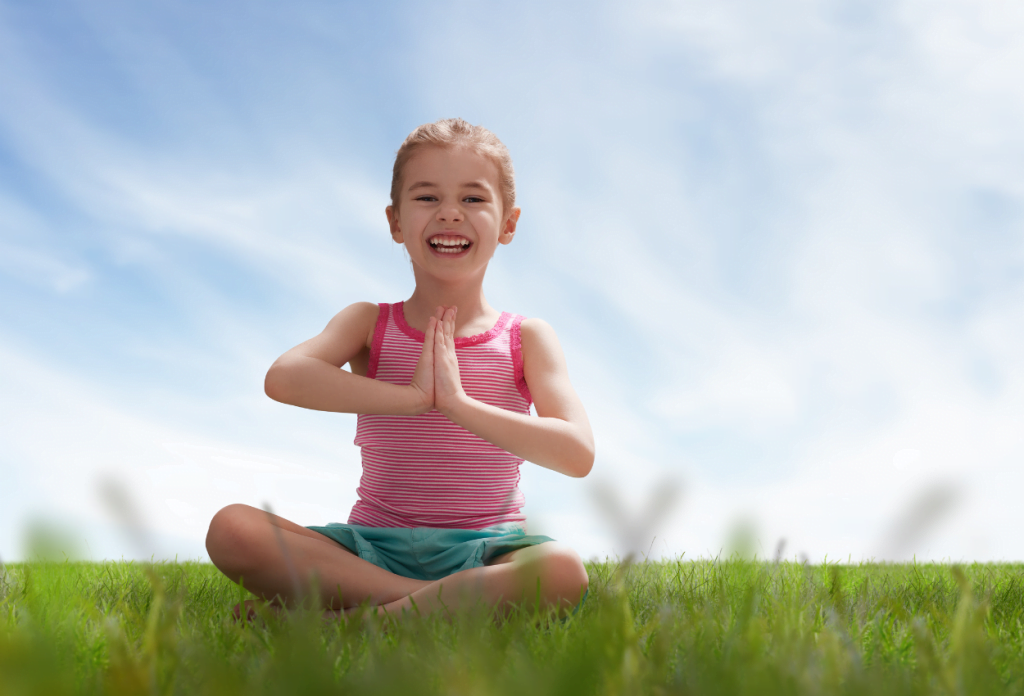The world is stressful, even for children who should be enjoying their early years playing, learning, and growing. In fact, New Scientist reports that more and more children report feeling anxious about their lives and the world around them than ever. The reasons for this increasing fear vary, including social media, political challenges, and financial worries.
Tragically, this means that more children are developing emotional health issues like depression that can significantly impact their lives for years. If your child experiences excessive anxiety and even panic attacks, it’s easy to feel terrified and helpless. After all, you probably worry a lot too, and trying to balance your anxiety with your child’s may feel like one plate too many to spin.
However, you can do your child and yourself a huge favor by learning meditation together. Deep meditation can be a powerful tool for relaxation that can ease your anxieties and create a happier life. At A Cognitive Connection, our team can help you understand this life-changing technique and guide you and your children to a life with less anxiety, fear, and depression.

What is Meditation Exactly?
The general public often misunderstands meditation because of its heavy connection with Eastern religions and New Age movements. In fact, many assume it’s nothing more than a pseudo-science that provides little to no benefits. Unfortunately, this idea keeps hundreds, if not thousands, of people from tackling their anxieties head-on using this powerful technique.
According to The Cleveland Clinic, meditation is a “practice that involves focusing on clearing your mind using a combination of mental and physical techniques.” Deep meditation does not involve astral projection or anything like that. In fact, there’s a good chance you’ve probably meditated in your life without even realizing it. Think of your last genuinely stressful situation.
Maybe you were trying to make a tough decision between several not-so-great alternatives. Or perhaps you needed to help your child through their own panic and weren’t sure what to do. Did you stop, close your eyes, take several deep breaths, and try to calm your anxiety? You were briefly meditating or clearing your mind of all upsetting thoughts and worries. Isn’t that cool?
Here’s another example that might hit close to home. If you’re a Christian, you may have prayed to God several times daily or focused intently on connecting with the Holy Spirit. In this way, prayer is a type of meditation! It’s your attempt to clear your mind and focus on your connection with God. Clearly, meditation is not just used by Buddhist monks to obtain enlightenment.
Is It Challenging to Learn?
By now, medical scientists have proven that meditation provides many unique benefits. So, why doesn’t everybody meditate every day? Furthermore, why do sites like Psychology Today post articles titled “Why Is It So Hard to Meditate?” if it’s so beneficial? Well, meditation often goes against the grain of today’s “gotta go” lifestyle, and people rarely make time for it.
Furthermore, many people assume that meditation is something that they just can’t learn. Even worse, parents might figure their children can’t handle meditation and don’t even attempt to teach them. Tragically, this means many parents and kids who could benefit heavily from this powerful relaxation practice never get a chance to try mitigating anxiety with regular meditation.

Here are a few other reasons why people may find meditation hard to learn:
- The Unconscious Mind is Busy: If you stop and pay attention to your thoughts, you’ll quickly realize it’s a bustling place to live. Your unconscious mind constantly throws things your way, making clearing your thoughts much more complicated.
- Distractions are Everywhere: Computers, televisions, and cell phones are just the three biggest distractions that make meditation hard to learn. Furthermore, family time, preparing dinner, work, and chores can all distract people from meditating regularly.
- Time is Hard to Find: When your kids come home from school, they have homework to do! They might even have sports practices and other events to attend. As a result, many kids might not think they have enough time to meditate correctly.
- People Misunderstand Meditation: As mentioned before, people often think meditation is some unobtainable goal or superpower that only Buddhist monks learn. Anybody can meditate! You just have to set your expectations and goals appropriately.
The good news is that it’s never too late to start learning meditation! Even seniors in their 60s and 70s can master meditation to improve their cognitive health. Meditation provides one of the best healthy stress-coping mechanisms imaginable because it’s adaptable to each practitioner and easy to broaden or focus in scope. But can children really learn to meditate? Absolutely!
Which Benefits Does It Provide Children?
Mastering meditation (or even learning a few basic tricks) can transform your child’s life in many ways. Most of these benefits center on emotional control and stress management, though there are far more advantages than these. Mindworks lists some of the most significant meditation benefits that could transform your child’s life. These include how it can:
- Manage Anxiety and Stress: Whenever your child feels anxious, meditation can calm their mind and minimize their stress. It doesn’t remove these emotions from their lives entirely but provides coping mechanisms to make them easier to handle.
- Improve Concentration and Focus: Cognitive fatigue is a common problem often caused by heavy stress and anxiety. It may reduce your child’s focus and concentration and make life difficult. Meditation alleviates this issue by soothing their mental fatigue.
- Enhance Physical Health: Meditation provides far more than just mental health benefits. Specialists state that meditation can improve your child’s immune system, lower their blood pressure, enhance their circulation, and control their heart rate.
- Increase Their Academic Performance: Meditation is often a powerful way for children to clear their minds before studying. By knowing how to focus more effectively, they can retain information better, graduate with honors, and attend college.
- Build Confidence: When children learn to meditate, they’ve mastered a skill that many of their friends won’t. Knowing something special gives children the confidence to tackle complex tasks. Furthermore, they can use meditation to understand self-esteem issues.
- Boost Self-Control:

Can Kids Even Learn Meditation?
Any child can learn to meditate as long as you understand their abilities and limitations. Remember: meditation provides an adaptable platform you can use however you want! Your child doesn’t have to spend 30 minutes every day meditating on the mysteries of the universe. Instead, they’ll likely meditate for 2-5 minutes to manage anxiety when it starts hitting them.
As a result, your teaching approach should focus on reinforcing meditation’s adaptability. After all, getting a kid to sit still and relax for five minutes is much easier than 10 or 30 minutes. If your child understands that even two minutes of meditation can calm their anxieties, they’ll be more likely to not only learn meditation but practice it regularly without needing prompting from you.
Furthermore, Healthline reports that it’s essential to support your child throughout this process. They state that children need “an external structure provided by adults” to learn meditation properly. What’s great about teaching your children meditation is that you can use these techniques in your daily life. To us, that’s a benefit you just can’t ignore for your mental health!
How Can I Teach My Children Meditation?
There’s no singular meditation teaching technique that will work for every child. After all, you know your child better than anyone and understand what methods work best. However, our crew at A Cognitive Connection can answer your questions and provide simple tips to make this process easier. Please consider these when creating your child’s new meditation routine:
- Introduce Them to Meditation: Sit down with your child and discuss meditation with them. Answer all their questions and explain them so they’ll understand it better.
- Teach Some Breathing Exercises: A few simple breathing exercises are often a great start for children learning meditation because they provide a centering point.
- Utilize Mindfulness Techniques: Teach your children how to stay mindful throughout the day, such as appreciating nature and watching what they eat more carefully.
- Schedule Meditation Time: Kids need strict schedules, so try to create a short meditation time in a safe place where they can feel comfortable and relax.
- Lead by Example: Don’t just set your child up for meditation; practice with them daily. This step sets a good example and can help you manage your anxiety, too.
- Stay Patient and Firm: There will be days when your child dislikes meditation and wants to quit. Be patient with their fluctuations but firm in your lessons as well.

Can A Cognitive Connection Help Me and My Children?
A Cognitive Connection can provide pediatric behavioral therapy for your child to help them manage their anxiety and depression in powerful ways. Our services include:
- Cognitive brain training, including V.I.B.E.S. and Mind’s Eye treatment
- Behavioral assessments to figure out where your child’s problems originate
- Behavioral counseling to teach better social skills and self-interactions
- Behavioral consultation to overcome complex emotional roadblocks
- H.E.R.O.E.S., a powerful program for those with intellectual or developmental disabilities
- Intensive classes that can teach both parents and children better coping techniques
Our Team is Ready to Help You
By teaching your children meditation, you give them and yourself a powerful tool for managing anxiety, decreasing fears, and living a happier and healthier life. That’s a gift that will keep on giving, particularly as they age into their teen years and adulthood. Contact us at A Cognitive Connection if your child (or you) needs more help than meditation can provide. Call (719) 358-6637 or use our contact form to schedule a life-changing appointment with our specialists.


